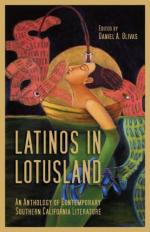|
This section contains 6,054 words (approx. 21 pages at 300 words per page) |

|
SOURCE: Hedin, Raymond. “The American Slave Narrative: The Justification of the Picaro.” American Literature 53, no. 4 (January 1982): 630-45.
In the following essay, Hedin concentrates on the new literary strategies of nineteenth-century slave narratives which grafted morality, political awareness, and irony to the simpler, eighteenth-century picaresque narrative tradition.
If “well begun is half-done,” a bad start can also mean a bad finish. Beginnings establish a momentum that later stages tend to continue or at least need to confront. Hence the appropriate fascination of scholars with origins—of culture, political movements, personality development. Our sense of beginnings is always colored by our sense of the ending, or of the middle if no end has been reached yet. Neither terminal point exists without the other; if the child is father of the man, our sense of the man shapes our view of his childhood. Nowhere is this reflexive relationship more evident nor...
|
This section contains 6,054 words (approx. 21 pages at 300 words per page) |

|


